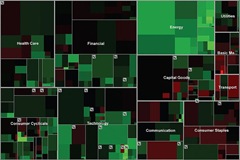A little more than a year ago the Obama administration announced a scheme to help mortgage borrowers in trouble, in which the loans would be modified in a way that would make the terms more affordable. I thought it was unlikely to  work as promised and said so at the time. The plan was greeted with some widespread skepticism, although a lot less than I thought was warranted.
work as promised and said so at the time. The plan was greeted with some widespread skepticism, although a lot less than I thought was warranted.
At the time, I assumed that what lukewarm enthusiasm it did garner from the media was due to a bias in favor of government intervention in general and this administration in particular. Now I am not so sure. I think it may be that the journalists charged with explaining the scheme to others did not really understand the fundamental flaws so obvious to so many of us.
The latest update on the plan’s progress in the New York Times repeats what has become a recurring theme, that the scheme is at least an order of magnitude less effective than envisioned. But read the text closely and you get the impression of true disappointment and surprise at this failure. The piece contains not a hint of discussion of why the plan failed, as if it was a unfathomable act of nature, rather than something that many thoughtful people accurately predicted from the start. And it ends with finger pointing.
The Treasury is being accused of moving the goalposts a bit. It now says its intention was merely to offer help to those four million borrowers, not to make sure they actually got it.
Read more »
Are you eligible for food stamps? Are you sure? Why not check here and find out? Unfortunately, the rules vary from state to state and are pretty complex within each one, so I can’t give much in the way of useful guidelines.
 But I’m guessing the rules are a lot more permissive than you think. They probably grant food stamps, or Supplemental Nutrition Assistance as it is now technically called, to folks you probably do not think should be eligible, possibly including you.
But I’m guessing the rules are a lot more permissive than you think. They probably grant food stamps, or Supplemental Nutrition Assistance as it is now technically called, to folks you probably do not think should be eligible, possibly including you.
I know this from an article now reverberating around the blogosphere that was posted Monday at Salon, Hipsters on Food Stamps. (I am nowhere near hip enough to read Salon. I found it from thoughtful commentary the next day called Using Food Stamps at Whole Foods, on The Big Money, which I do read.)
Read more »
SmartMoney, which I scan occasionally on-line, but which is still apparently a real magazine printed on paper, currently has a cover story that includes a bit called Life Plan: Make Your Home Pay Off. It is just one section of a larger feature on planning personal finances. I cannot bring myself to read the other bits.
called Life Plan: Make Your Home Pay Off. It is just one section of a larger feature on planning personal finances. I cannot bring myself to read the other bits.
As an exercise in laying bare the state of mainstream personal finance advice and/or journalism, let us examine this piece in detail. It’s not long, at seven paragraphs and 532 words. I should be able to get my hands around their advice and, if necessary, refute it without too much fuss.
Paragraphs 1 and 2 tell us about a retired couple, Bob and Linda Gillet of San Diego, who live a life of European cruises and dinners out. They can do this because they paid off their mortgage early.
Read more »
I risk stating the obvious when I say that economic times are still tough. The recession, as the term is strictly defined, ended last summer. But that just means that the economy stopped contracting. The environment is still plenty challenging, even if it is a tiny bit less challenging than it was a few months ago.
 So it feels a little strange to be discussing the first birthday of the bull market. Most people are not comfortable even calling it a bull market, using paler terms such as rally or recovery. But in any other economic context it would be hailed as a great and wondrous upswing that we have all been lucky to live through.
So it feels a little strange to be discussing the first birthday of the bull market. Most people are not comfortable even calling it a bull market, using paler terms such as rally or recovery. But in any other economic context it would be hailed as a great and wondrous upswing that we have all been lucky to live through.
The S&P 500 closed at 682.55 on March 5, 2009. That turned out to be its low for 2009, and indeed for the decade. It was a level last seen in September 1996. In other words, with dividends ignored, the market had on average returned nothing for thirteen years.
Read more »
There are two ways in which I am handicapped in my analysis of today’s numerical fiction candidate.
First, I don’t like basketball. I’m not sure why. I’ve been accused of being off the deep end about baseball and I’ll catch the occasional football and hockey game, but basketball does nothing for me. I never liked playing it as a kid, even during that brief window when I was taller than my friends.
Second, I do not have a job.
So I lack much in the way of personal experience to help me understand what is apparently a GDP-threatening scourge, the annual NCAA Men’s Basketball Tournament. It seems that employed basketball fans, who make up a surprisingly large proportion of the population, will waste enough work time to cost their employers $1.8 billion in "unproductive wages" in the tournament’s first week alone. Add in the money lost gambling on the games and the hit to e-commerce from the slowdown in internet speeds caused by people watching the games, and you’ve got a serious menace to the economy.
Or so I am told.
Read more »
 work as promised and said so at the time. The plan was greeted with some widespread skepticism, although a lot less than I thought was warranted.
work as promised and said so at the time. The plan was greeted with some widespread skepticism, although a lot less than I thought was warranted.


